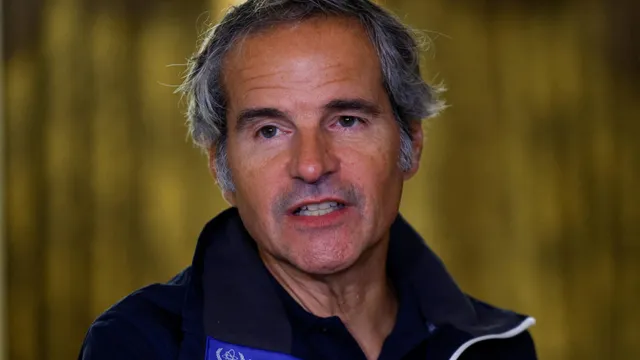
IAEA warns of nuclear threats in Ukraine and Iran
2024-09-25 18:30- Ukrainian President Volodymyr Zelenskyy accused Russia of planning attacks on nuclear power plants during a UN address.
- The IAEA has personnel at all nuclear facilities in Ukraine, including Zaporizhzhia, to ensure safety and assess critical substations.
- Iran's nuclear program raises concerns, complicating negotiations due to the lack of transparency regarding uranium traces at undeclared sites.
Express your sentiment!
Insights
Ukrainian President Volodymyr Zelenskyy addressed the United Nations, accusing Russia of planning attacks on Ukraine's nuclear power plants. The International Atomic Energy Agency (IAEA), led by Rafael Grossi, has personnel stationed at all nuclear facilities in Ukraine, including the Zaporizhzhia plant, to ensure safety amid the ongoing conflict. The IAEA is also assessing the critical substations that supply electricity to these plants, emphasizing the importance of maintaining power for their safe operation. In parallel, Iran has expressed interest in resuming nuclear diplomacy, although it has faced scrutiny for failing to explain uranium traces found at undeclared sites. Grossi highlighted the challenges posed by Iran's nuclear program, which has seen uranium enrichment levels rise to 60 percent purity. This situation complicates negotiations, as the IAEA requires clarity on Iran's nuclear activities to establish a foundation for effective discussions. The IAEA's role is crucial in both scenarios, as it seeks to mitigate nuclear risks in Ukraine while addressing concerns regarding Iran's nuclear ambitions. Grossi's discussions with Iranian officials aim to clarify the situation and facilitate negotiations, but the lack of transparency from Iran remains a significant hurdle. Overall, the IAEA is actively engaged in monitoring nuclear safety in Ukraine and addressing the complexities of Iran's nuclear program, highlighting the interconnected nature of global nuclear security challenges.
Contexts
The International Atomic Energy Agency (IAEA) has raised alarms regarding nuclear threats stemming from the ongoing conflicts in Ukraine and Iran. Ukrainian President Volodymyr Zelenskyy has warned of potential Russian attacks on Ukraine's nuclear power plants, referencing the 2022 attack on the Zaporizhzhia facility and emphasizing the risk of a nuclear disaster. He has called for global leaders to support Ukraine's defense against Russian aggression. In response to the conflict, President Vladimir Putin has revised Russia's nuclear doctrine, stating that any conventional attack on Russia supported by a nuclear power would be treated as a joint attack. This shift lowers the threshold for nuclear response and aims to deter Western support for Ukraine. The situation in Ukraine remains critical, with intense fighting reported in the Donetsk region, where Russian forces have intensified assaults. The ongoing military conflict has raised concerns about the safety of nuclear facilities in Ukraine, as the potential for disaster increases with continued hostilities. The IAEA's warnings highlight the urgent need for international cooperation to address the nuclear risks associated with the conflict, as well as the broader implications for global security amid rising tensions between nuclear powers.